- Ministry of Heavy Industries
- HD Kumaraswamy
- Narendra Modi
- Scheme to Promote Manufacturing of Electric Passenger Cars in India
Heavy Industry Ministry Rolls Out Scheme To Promote EV Manufacturing In India
- By MT Bureau
- June 25, 2025
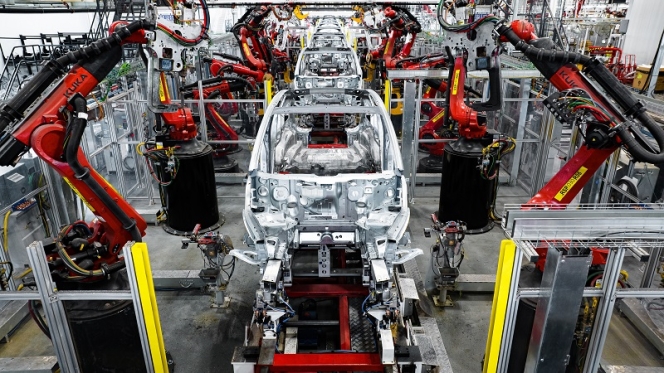
The Ministry of Heavy Industries (MHI) has announced a new initiative to promote green mobility in the country under the ‘Scheme to Promote Manufacturing of Electric Passenger Cars in India’ (SPMECI).
The initiative aims to focus on encouraging the manufacturing of electric four-wheelers in the country. The scheme eventually looks to establish India as a premier global EV-manufacturing hub and attract investments from global electric vehicle companies, along with generating employment.
The Ministry of Heavy Industry has opened the application portal for a period of around 3 months starting from 24 June 2025 till 6pm on 21st October 2025.
HD Kumaraswamy, Union Minister for Heavy Industries and Steel of India, said, “Guided by the visionary leadership of Prime Minister Narendra Modi, this initiative marks a defining moment in India’s journey towards clean, self-reliant and future-ready mobility. The launch of this portal under the SPMEPCI scheme opens new avenues for global electric vehicle manufacturers to invest in India’s rapidly evolving automotive landscape. This scheme not only supports our national commitment to achieving Net Zero by 2070, but also reinforces our resolve to build a sustainable, innovation-driven economy.”
As per the guidelines, all approved applicants will need to invest a minimum of INR 41.5 billion to establish long-term manufacturing footprints in India. Global OEMs who invest in the country will be able to import electric passenger vehicles as Completely Built Units (CBUs) with a minimum CIF value of USD 35,000 at reduced customs duty of 15 percent for a period of five years from the Application Approval Date.
The Ministry has announced calibrated customs duty concessions and clearly defined Domestic Value Addition (DVA) milestones to strike a balance between the introduction of advanced EV technologies and the use of indigenous capabilities. Through domestic value addition targets, the scheme aims to fast track global and domestic companies towards becoming active partners in the country’s green mobility revolution.
SPMECI had been notified by a notification given on 15 March 2024.
- Skoda Auto Volkswagen India
- SAVWIPL
- Kylaq
- H D Kumaraswamy
- Union Cabinet Minister of Heavy Industries and Minister of Steel
- Piyush Arora
Skoda Auto Volkswagen India Crosses 50,000-Unit Production Milestone For Kylaq SUV
- By MT Bureau
- January 27, 2026
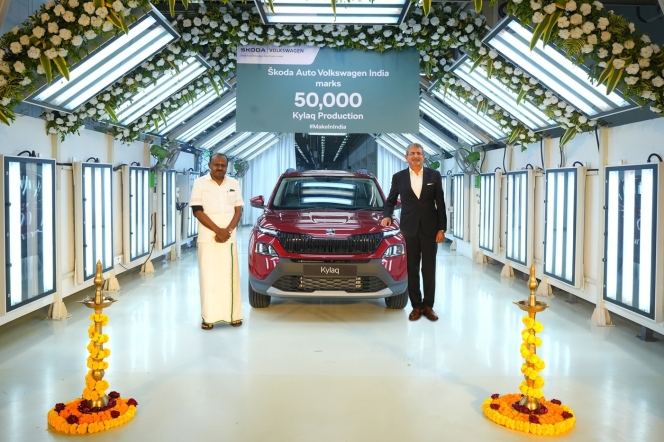
Skoda Auto Volkswagen India (SAVWIPL) has achieved a new production milestone of rolling out 50,000 units of the Skoda Kylaq from its Chakan facility.
The Kylaq, the company stated, has contributed 36 percent to the Group’s YoY growth in 2025. It achieved this volume by expanding its operations and increasing the use of domestic components.
To support the production of the Kylaq, SAVWIPL increased the capacity of the Chakan plant by 30 percent. The vehicle is built on the MQB-A0-IN platform, a chassis architecture designed for the Indian market. The group has focused on localisation and the development of a local supplier network to support its manufacturing output.
The milestone follows 25 years of the group's presence in India, during which it has developed an integrated ecosystem and a local talent pool. By increasing production and localisation, the company aims to support the government’s manufacturing initiatives while deepening its engineering and sourcing capabilities within the country.
H D Kumaraswamy, Union Cabinet Minister of Heavy Industries and Minister of Steel, said, “I congratulate Skoda Auto Volkswagen India on achieving this production milestone and for their continued commitment to the ‘Made in India’ initiative.”
Piyush Arora, MD & CEO, Skoda Auto Volkswagen India, said, “The 50,000‑unit milestone for the Kylaq reflects the deep trust and affection our customers have shown for this product. Built on the proven MQB‑A0‑IN platform, the Kylaq’s success is a powerful validation that vehicles designed in India, both for India and the world, continue to earn admiration and confidence from customers domestically and globally.”
Hindalco Commissions INR 45 Billion Investment To Manufacture FRP & Battery Grade Aluminium Foil In Odisha Facility
- By MT Bureau
- January 27, 2026
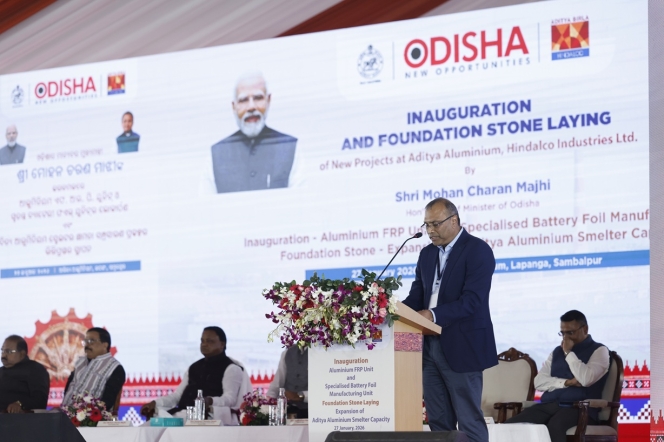
Hindalco Industries has announced an INR 210 billion expansion of its aluminium smelter in Sambalpur, Odisha. The project will add 360,000 tonnes per annum of capacity to the Aditya Aluminium complex. Additionally, the company has commissioned a manufacturing facility for flat rolled products (FRP) and battery-grade aluminium foil following an investment of INR 45 billion.
The facilities form part of a growth programme involving INR 370 billion of planned expenditure in Odisha. The battery-grade foil plant is intended to provide raw materials for the production of lithium-ion cells, with a capacity to support 100 GWh of manufacturing. The expansion of the FRP unit aims to reduce India’s reliance on imported flat-rolled aluminium, which currently accounts for 40 percent of domestic consumption.
The smelter expansion incorporates plans to use round-the-clock renewable energy for a portion of its power requirements. This project connects upstream resources with downstream manufacturing, linking bauxite mining and alumina refining to the production of foil and high-grade materials. The company expects the next phase of investment to create 15,000 jobs in the region, adding to its current workforce of 23,000 in the state.
Kumar Mangalam Birla, Chairman, Aditya Birla Group, said, “India’s manufacturing growth depends on integration, value addition and sustainability. Through Hindalco, we are building a fully integrated aluminium ecosystem that spans from upstream resources to high-value downstream products. Our long-standing partnership with Odisha continues to play an important role in this journey. This strategy strengthens India’s self-reliance, supports critical sectors, and accelerates the nation’s transition towards advanced, sustainable manufacturing.”
Satish Pai, Managing Director, Hindalco Industries, added, “The FRP expansion and smelter growth at Sambalpur exemplify our integrated upstream–downstream growth strategy. This enables Hindalco to deliver high-quality aluminium solutions across packaging, defence, electric mobility, renewable energy and advanced manufacturing, positioning us strongly to support India’s industrial ambitions while creating long-term value.”
Hindalco’s roadmap in Odisha includes the Kansariguda alumina refinery, the Meenakshi coal mine, and units for white fused alumina. The company has invested over INR 250 billion in the state over the last 15 years. These developments are part of a wider INR 550 billion capital expenditure plan across India.
Chery To Acquire Nissan’s South Africa Manufacturing Assets
- By MT Bureau
- January 26, 2026
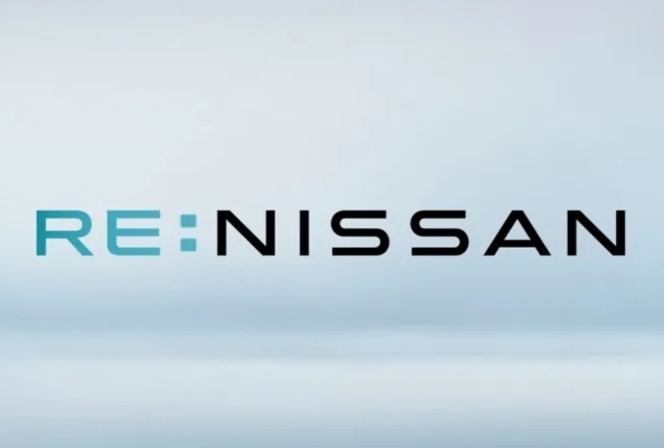
Japanese automaker Nissan and China’s Chery have reached an agreement for the acquisition of Nissan’s manufacturing facilities in Rosslyn, South Africa, which is subject to regulatory approvals and the fulfilment of specific conditions.
As per the understanding, Chery will purchase the land, buildings and associated assets, including the stamping plant, in mid-2026. Chery will offer employment to the majority of Nissan’s current staff at the site on terms and conditions similar to their existing contracts. The move follows a period of impact on the utilisation and viability of the plant within Nissan's global operations.
Despite the sale of the production facility, Nissan will maintain its commercial presence in South Africa. The company plans to continue its sales and service operations and has scheduled several vehicle launches for the 2026 fiscal year, including the Nissan Tekton and Nissan Patrol.
The acquisition allows the Rosslyn site to remain an active part of the South African automotive manufacturing sector. The preservation of the facility also aims to maintain opportunities for the existing local supplier network that services the plant.
Jordi Vila, Nissan Africa President, said, “Nissan has a long and proud history in South Africa and has been working to find the best solution for our people, our customers and our partners. External factors have had a well-known impact on the utilisation of the Rosslyn plant and its future viability within Nissan. Through this agreement we’re able to secure employment for the majority of our workforce thereby also preserving opportunities for our supplier network. This move also ensures that the Rosslyn site will continue contributing to the South African automotive sector.”
- Neolite ZKW Lightings
- Tata Motors
- Stellantis
- JSW MG Motor India
- Daimler India Commercial Vehicles
- Piaggio Vehicles
- Won Yong Hwang
- ZKW Group
- Rajesh Jain
- Rajesh Soni
Neolite ZKW Opens Automotive Lighting Facility In Pune
- By MT Bureau
- January 23, 2026
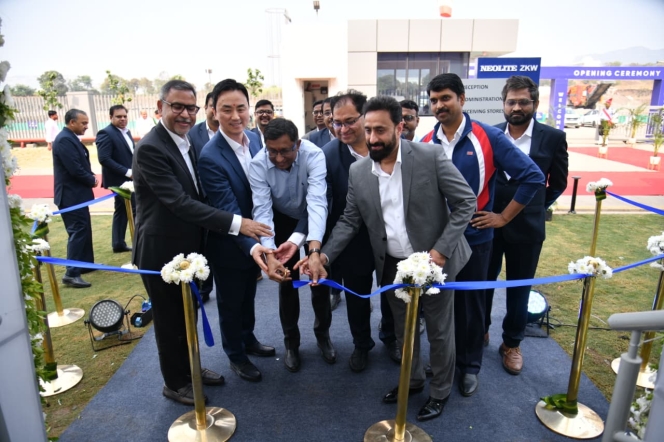
Neolite ZKW Lightings held a commemorative ceremony on 23 January 2026 for its new manufacturing plant in Pune, Maharashtra. The facility, which began operations in December 2025, is situated near the Mumbai-Pune-Nashik-Aurangabad automotive cluster. This location allows the company to manage inventory and provide services to customers including Tata Motors, Stellantis, JSW MG Motor India, Daimler India Commercial Vehicles and Piaggio Vehicles.
The facility includes an independent design centre featuring simulation software, optical design tools and 3D modelling capabilities. This centre supports product development, prototyping and validation to meet global regulatory standards. The Pune plant focuses on manufacturing processes such as moulding, surface treatment and assembly for lighting products and components.
Neolite ZKW Lightings produces lighting solutions for passenger vehicles, commercial vehicles and two-wheelers. Its portfolio is powertrain agnostic, supplying components for both internal combustion engine vehicles and electric vehicles. Following the commencement of the Pune facility, the group intends to focus on opening its next plant in Kancheepuram.
Won Yong Hwang, CEO, ZKW Group, said, “India continues to emerge as a strategic market for the global automotive industry. Neolite ZKW’s expansion in Pune represents a positive step toward advancing next-generation automotive lighting solutions, and we look forward to continued collaboration in technology and innovation”.
Rajesh Jain, Chairman and Managing Director, Neolite ZKW Lightings, said, “Our new Pune plant reflects our commitment to invest in capacity, technology and talent to support the next phase of growth for our customers and for Neolite ZKW. With this facility, we are better positioned to respond timely to customer requirements, drive innovation in automotive lighting, and create employment opportunities in the region. After this, our next focus will be to get our Kancheepuram facility up and running and we are working very hard to get that done”.
Rajesh Soni, CEO, Neolite ZKW, added, “The Pune facility is designed to focus on manufacturing of automotive lighting products and components including moulding, surface treatment and assembly. Further, in line with the shift toward electrification and sustainability, we also offer certain electric vehicle focused lighting products. At the same time, our portfolio is powertrain agnostic that serves both EVs and internal combustion engine vehicles”.







Comments (0)
ADD COMMENT